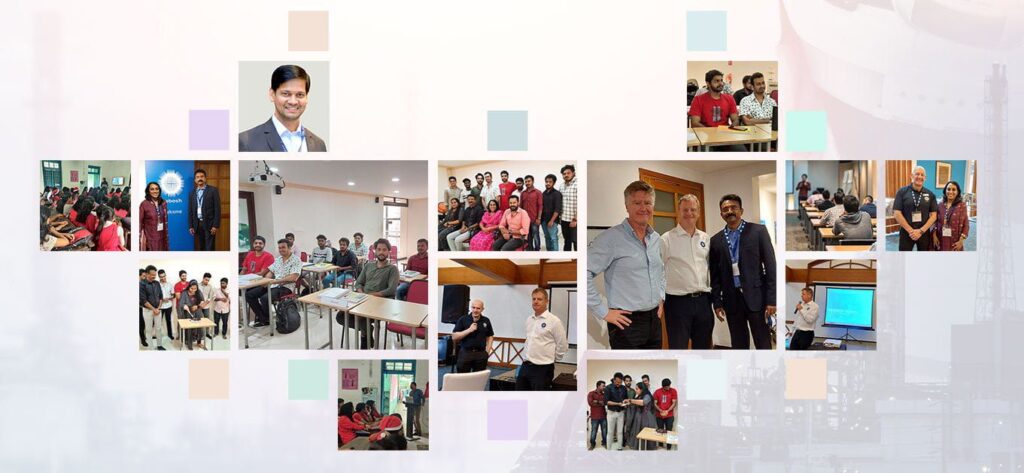What is IELTS ?
IELTS is the International English Language Testing System which tests English proficiency across the globe. Conducting 2 million tests in every year, IELTS is the world’s most popular high stakes English-language test for study, work and migration.
IELT is an international standardised test of English language proficiency for non-native English language speakers. It is jointly managed by the British Council, IDP: IELTS Australia and Cambridge English Language Assessment,[6] and was established in 1989. IELTS is one of the major English-language tests in the world, others being the TOEFL, TOEIC, PTE:A and OPI/OPIc.
IELTS is accepted by most Australian, British, Canadian and New Zealand academic institutions, by over 3,000 academic institutions in the United States, and by various professional organisations across the world.
IELTS is the only Secure English Language Test approved by UK Visas and Immigration (UKVI) for visa customers applying both outside and inside the UK. It is also a requirement for immigration to Australia and New Zealand. In Canada, IELTS, TEF, or CELPIP are accepted by the immigration authority.
No minimum score is required to pass the test. An IELTS result or Test Report Form is issued to all test takers with a score from “band 1” (“non-user”) to “band 9” (“expert user”) and each institution sets a different threshold. There is also a “band 0” score for those who did not attempt the test. Institutions are advised not to consider a report older than two years to be valid, unless the user proves that they have worked to maintain their level
IELTS @ Petrotech
At Petrotech Advanced Studies ( PAS) ,a division of Petrotech Safety Solutions ( UK’s NEBOSH approved course provider), our aim is to introduce English proficiency training and prepare students and professionals who wish to immigrate to foreign shores for jobs or further studies.
By taking the IELTS exams, you can find yourself open to a new world of opportunities. More than 9000 organizations in 140 countries accept IELTS, including government, academic and employment institutions. IELTS is jointly managed by the British Council, IDP: IELTS Australia and Cambridge English Language Assessment and was established in 1989.
IELTS Academic and IELTS general training are designed to cover the full range of ability from non-user to expert user. The Academic version is for test takers who want to study at tertiary level in an English speaking country or seek professional registration. The General Training version is for those who are going to English speaking countries for secondary education, work experience or training programs.
In an IELTS exam, all the four language skills are tested, namely listening, speaking reading and writing..
Listening
The listening test is 30 minutes long and you get an additional ten minutes to transfer the answers to an answer sheet. The listening test is the same for both Academic and general Training tests.. There are four sections.
- Section1 is a conversation between two people set in an everyday context
- Section 2 is a monologue set in an everyday social context.
- Section 3 is a conversation between up to four people set in an educational or training context.
- Section 4 is a monologue on an academic subject.
Speaking
In the speaking test, you have a discussion with a certified Examiner. It is interactive and the examiner assesses your fluency by asking questions on a wide range of topics. It is for 11-14 minutes long and is the same for both academic and general training tests.
Reading
The reading test is different for the academic and general training modules. The academic reading consists of three long reading passages with around 13- 14 questions for each passage. The texts are more academically oriented than the general training texts. The reading test last for an hour.
Writing
Both the academic and general writing tests have two sections and students are advised to spend twenty minutes on section 1 and forty minutes on section2, making one hour in total.
Petrotech’s Specialities
- At PAS, we are using exemplary technique to impact the training in all the four skills,Reading, Writing Listening and Speaking.
- Writing- Proficiency in English involves a good knowledge of syntax spelling and usage. Special attention will be paid to students who are weak in grammar and spelling. Sentence formation and vocabulary skills have to be developed.
- Reading is to test the ability of the candidate to comprehend the given passage. He needs to have a deep insight into semantics to attain the goal. Adequate training will be imparted to the candidates to attain proficiency in this area.
- Speaking candidates will be given special training to express them and meaningfully on various topics and situations.
- Listening skills- We have provided the technical aids essential to develop the listening skills of the candidates. A well-equipped language lab is set up for this purpose.
Our faculty
We have a competent team of teaching faculty with many years of experience in English teaching field in India & abroad.
Our approach is to assist the students by understanding their weak areas and giving students a personal one to one attention apart from class room studies.






